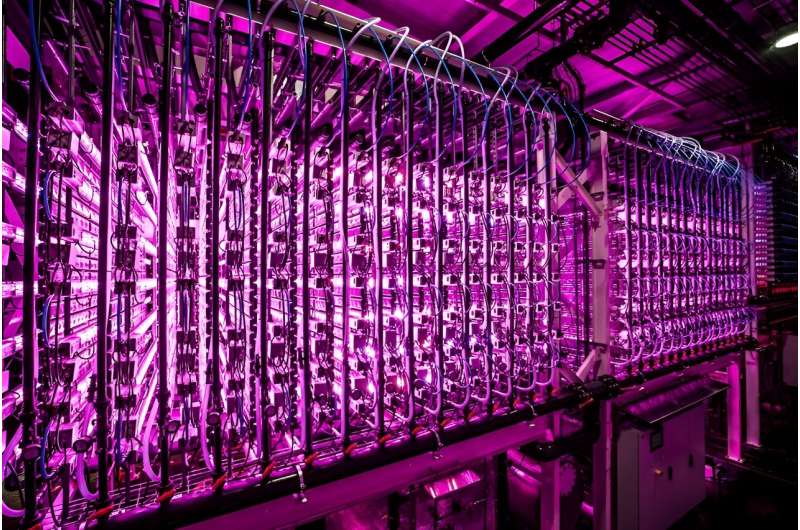
In new research published in the journal Discover Food, Dr. Asaf Tzachor, Founder and Academic Director of the Aviram Sustainability and Climate Program at Reichman University, along with a team of researchers from Iceland, Denmark and Austria, report the use of state-of-the-art biotechnology to cultivate photosynthetically-controlled Spirulina, and produce carbon–neutral and nutritious biomass containing unopposed, biologically active vitamin B12, in levels comparable to beef meat. This is the first time biologically active vitamin B12 has been reported in Spirulina.
Their new study reveals a potential solution to one of the most widespread micronutrient deficiencies: vitamin B12. With more than a billion individuals worldwide suffering from low levels of this essential vitamin, the reliance on meat and dairy products for adequate B12 intake (2.4 µg/day) presents significant environmental challenges.
While Spirulina blue-green algae (Arthrospira platensis) has been proposed as a healthier and more sustainable substitute for meat and dairy, the so-called traditional Spirulina has fallen short as a viable alternative due to its content of pseudo-vitamin B12, a form not bioavailable to humans. This limitation has hindered its potential to address vitamin B12 deficiencies, and fully replace beef meat in human diets.
In a pioneering exploratory study, an international team of researchers from Reichman University, University of Natural Resources and Life Sciences, Vienna, Ruppin Academic Center, Danish Technological Institute, and MATIS, Iceland, sought to overcome this challenge.

The team evaluated a biotechnology system developed by VAXA Technologies in Iceland, focusing on its engineering components, inputs (such as energy), and outputs, including biomass composition. The system employs photonic management (modified light conditions) to enhance active vitamin B12 production in Spirulina, along with other bioactive compounds with antioxidant, anti-inflammatory, and immune-boosting properties.
This innovative approach yielded carbon-neutral, nutritious biomass containing biologically active vitamin B12 at levels comparable to beef (1.64 µg/100g in PCS vs. 0.7–1.5 μg/100g in beef).
Dr. Tzachor, explains, “the findings demonstrate that photosynthetically controlled Spirulina can produce desirable levels of active vitamin B12, offering a sustainable alternative to traditional animal-source foods.”
The study also explores production scale-up scenarios with profound implications for global nutrition. By reallocating electricity from heavy industry, Iceland could produce 277,950 tonnes of Spirulina biomass annually. This output translates to approximately 4,555 grams of active vitamin B12 per year, meeting the recommended dietary allowance (RDA) for over 13.8 million children aged 1–3. More ambitious scenarios suggest the potential to meet the RDA for over 26.5 million children aged 1–3, and over 50 million children aged 0–6 months.
This breakthrough marks a significant step towards addressing global vitamin B12 deficiency sustainably, reducing reliance on environmentally taxing meat and dairy production.
More information:
A. Tzachor et al, Photonic management of Spirulina (Arthrospira platensis) in scalable photobioreactors to achieve biologically active unopposed vitamin B12, Discover Food (2024). DOI: 10.1007/s44187-024-00152-1
Citation:
Study unveils sustainable solution to vitamin B12 deficiency (2024, August 20)
retrieved 21 August 2024
from https://phys.org/news/2024-08-unveils-sustainable-solution-vitamin-b12.html
This document is subject to copyright. Apart from any fair dealing for the purpose of private study or research, no
part may be reproduced without the written permission. The content is provided for information purposes only.







